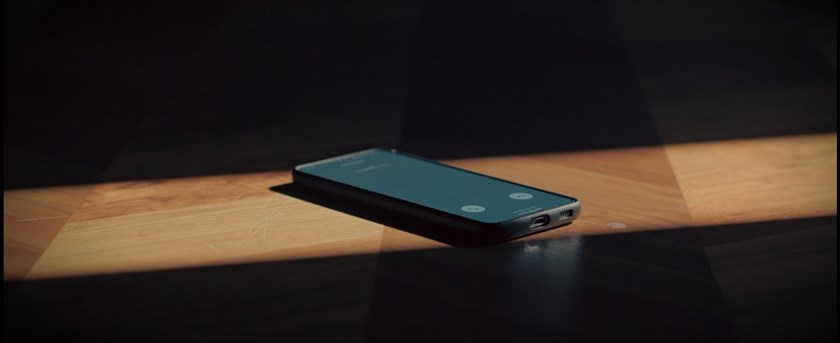Sir Cliff Richard v the BBC: privacy rights and criminal investigations
News

The helicopter images broadcast as police raided Sir Cliff Richard's home in Sunningdale were unquestionably one of the most controversial news segments of 2014. The case highlights the issue of privacy rights in criminal investigations.
Sir Cliff had been the subject of an allegation of historic sexual assault, which had been passed to South Yorkshire Police in or around July 2014. The raid on the property was conducted in August 2014 and was broadcast live by the BBC after a tip off from the police. Following a lengthy investigation, the Crown Prosecution Service announced last year that no charges would be brought against Sir Cliff.
As a result of the television coverage, Sir Cliff started legal proceedings, alleging that the BBC and the police had breached his privacy (under Article 8 of the European Convention on Human Rights (“ECHR”)) and his rights under the Data Protection Act 1998. The focus of Sir Cliff's claim includes in particular the police's disclosure of information to the BBC, and the broadcaster's subsequent coverage of the raid. The claim against the police was recently settled, with it agreeing to pay substantial damages and apologising "wholeheartedly for the additional anxiety" caused by its "initial handling of the media interest". However, the BBC is continuing to defend the claim, saying that, although it is very sorry Sir Cliff suffered distress, it stands by the decision to report the investigation and search of his property.
Private until charged?
The case raises important issues around the media coverage of criminal investigations and, specifically, the identification, before they have been charged, of those under investigation. In ERY v Associated Newspapers Limited [2016] EWHC 2760 (QB), the Mail on Sunday (somewhat surprisingly) conceded that an interview under caution engaged the claimant's rights to privacy under Article 8 ECHR. Conversely in ZXC v Bloomberg [2016] EWHC 2760, on very different facts, the High Court rejected an injunction application from a claimant who requested the removal of an article which identified him as under investigation by a law enforcement agency.
In ZXC, the Court dismissed the idea of a blanket rule that (without the sort of concession given by the Mail on Sunday in ERY) there can be no reasonable expectation of privacy in the fact that an individual is being investigated by the police. It said that each case is fact specific. While the Court found that ZXC had a reasonable expectation of privacy in the information, Bloomberg's freedom of expression rights (under Article 10 of the ECHR) prevailed. Among other things, ZXC had made no effort to remove a previous article that identified him, took 9 days to object to the article in question and did not file a witness statement providing any detail of the effects on him of the article. Conversely, the article was found to constitute a serious piece of journalism about a serious issue, and was not written in the style of a "salacious kiss and tell".
If Sir Cliff's claim against the BBC does ever reach trial, the Court will conduct a similar balancing exercise between his privacy rights and the BBC's freedom of expression rights to make the investigation public. There have to be serious questions about whether the Court would reach the same conclusion as in ZXC, given the decision to broadcast live images from outside Sir Cliff's home during the raid and the intense stigma attached to being associated with historic sexual abuse, even before a charging decision.
Yewtree or not: the protection of journalistic sources
These questions were crystallised further by a recent interim decision of the High Court. The Court, following an application made by Sir Cliff and his legal advisers, ordered the BBC to answer whether or not the original source for their information (i.e. before the raid was later disclosed by the police) came from within Operation Yewtree (the highly publicised police investigation into sexual abuse allegations against Jimmy Savile and others). The BBC argued that the answer to this question was not a central issue in the claim. The BBC also argued that, if it was required to disclose this information, it would increase the risk that its source might be identified and/or would amount to the disclosure of material information about the source that would have a "chilling effect" on freedom of expression.
Courts are not permitted to require journalists to disclose their sources, unless it is established that it is "necessary in the interests of justice or national security or for the prevention of disorder or crime". A qualified right to protect sources is also implicit in Article 10. This is based on the rationale that, if journalists were obliged always to disclose their sources, it would restrict their ability to receive and publish information freely. In Sir Cliff's case, the Court also found that journalists' freedom of expression rights could be engaged where they were obliged to disclose information that the source would be sensitive about and might not have anticipated being given to third parties.
However, on the facts, the BBC could not demonstrate that, if it was obliged to disclose that its source came from within Operation Yewtree (which was assumed to be the case for the purposes of deciding the issue), there was a significant risk of identifying the source. Specifically, it was found that 119 people had access to the records showing Sir Cliff was under investigation (making identification highly unlikely). Moreover, despite the BBC's arguments to the contrary, the Court did not accept that, if the source was from Operation Yewtree, this would lead to a police investigation into the leak (which might in turn lead to the source being identified). One such inquiry had already been conducted and the Court considered another was unlikely.
The Court also concluded that, while freedom of expression rights were engaged by Sir Cliff's request for the information, the balance weighed in favour of disclosure. Not only had the idea of an Operation Yewtree source been in play before (as evidenced by the previous inquiry), which reduced the significance of a positive answer to the question, but the answer was also highly relevant to Sir Cliff's case. Specifically, if the source did, in fact, come from Operation Yewtree, Sir Cliff argued that this would demonstrate the BBC's awareness (before the further disclosures from the police) that their information came from a highly confidential source (thereby, on his case, enhancing the privacy argument). Sir Cliff also claimed that the BBC had used the information from its source to "strong-arm" the police into providing details of the investigation (something the BBC denies). Importantly, if Sir Cliff could show this at trial and the source did come from Operation Yewtree, then it could be highly relevant to whether or not he had a reasonable expectation of privacy in the information subsequently broadcast and also to the BBC's defence that its coverage was in the public interest.
In summary, the Court held that the low risks associated with ordering disclosure of whether or not the BBC's source was from Operation Yewtree were trumped by the potential importance of this information to Sir Cliff's case and his right to a fair trial under Article 6 ECHR.
Conclusion
Time will tell whether Sir Cliff reaches a settlement with the BBC after this interim hearing. The lawyers among us are (naturally) hopeful that the case proceeds to a trial and the Court provides more guidance on the relationship between an individual's privacy rights and media coverage of a criminal investigation. But the law of averages suggests otherwise. There is also the concern within media organisations about judicial precedent-setting. A Court ruling that enhances privacy rights in relation to criminal investigations (which seems very plausible in this case) is unlikely to be something the BBC or any other outlet will be willing to risk unless it is very confident in its case.
If you require further information on anything covered in this briefing please contact Tom Rudkin or your usual contact at the firm on 020 3375 7000.
This publication is a general summary of the law. It should not replace legal advice tailored to your specific circumstances.
© Farrer & Co LLP, June 2017




